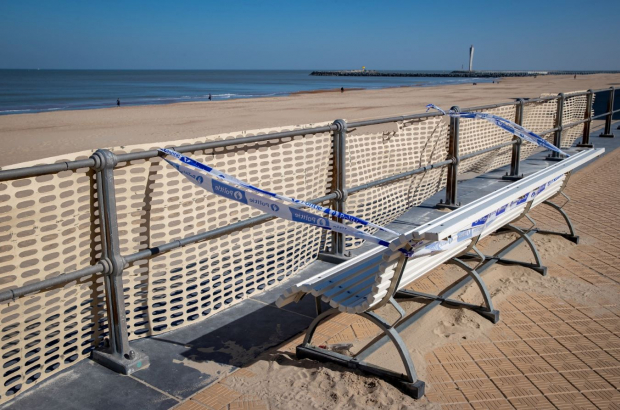- Daily & Weekly newsletters
- Buy & download The Bulletin
- Comment on our articles
Beaches may reopen in phases as lockdown is lifted
The 10 mayors of Flanders’ coastal municipalities met this week to discuss plans for managing tourist numbers when restrictions on movement are relaxed.
The mayors want to prevent too many people gathering at the beach during the summer holidays and propose allowing visitors in a series of phases. Those with second homes at the coast would be allowed to travel there from 18 May, followed by those renting an apartment. Day trippers may not be permitted until restaurants, bars and cafes reopen – no earlier than 8 June.
“I would rather not have as many people as possible head to the coast as soon as possible,” Ostend mayor Bart Tommelein told VRT’s De Afspraak. “If the restaurant industry is not yet open, it makes no sense. We don’t have enough toilets, food or seating for them. On a summer’s day, 600,000 people sit by the sea, on a narrow strip of coast. That becomes irresponsible.”
They will meet again on 11 May to agree a definitive plan to present to the National Security Council, which will have the final say.
While the 10 agreed on the principle of reopening in phases, during the meeting with West Flanders governor Carl Decaluwé, they were unable to reach a consensus on other matters.
The mayor of Bredene, Steve Vandenberghe, called for all events to be cancelled, including small local festivities. All major events such as music festivals have already been cancelled until September, across the whole country.
“We will need the police to help monitor the required distancing on the beaches and in busy shopping streets, as well as on the tram, which is an event in itself,” he told VRT. “Every warm day at the coast is like Tomorrowland times five. Our police services won’t have time to take care of events. And people need clarity about what is and isn’t allowed.”
According to Tommelein, a one-size-fits-all plan for all the coastal towns is not the right approach, as the municipalities differ so widely.
“As a city, we have the most day-trippers, and most of them come for the beach,” he said. “Our hotels are in the centre, and people don’t want to walk far to get to the beach. It’s not comparable to somewhere like Koksijde, which has hardly any hotels, or Bredene, which has far fewer residents and has mainly campsites. We have 70,000 inhabitants and are the most important city on the coast.”
He suggested a reservation system for day trippers, to prevent people driving to the coast only to find they were unable to access the beach.
Photo: Belga/Kurt Desplenter


















